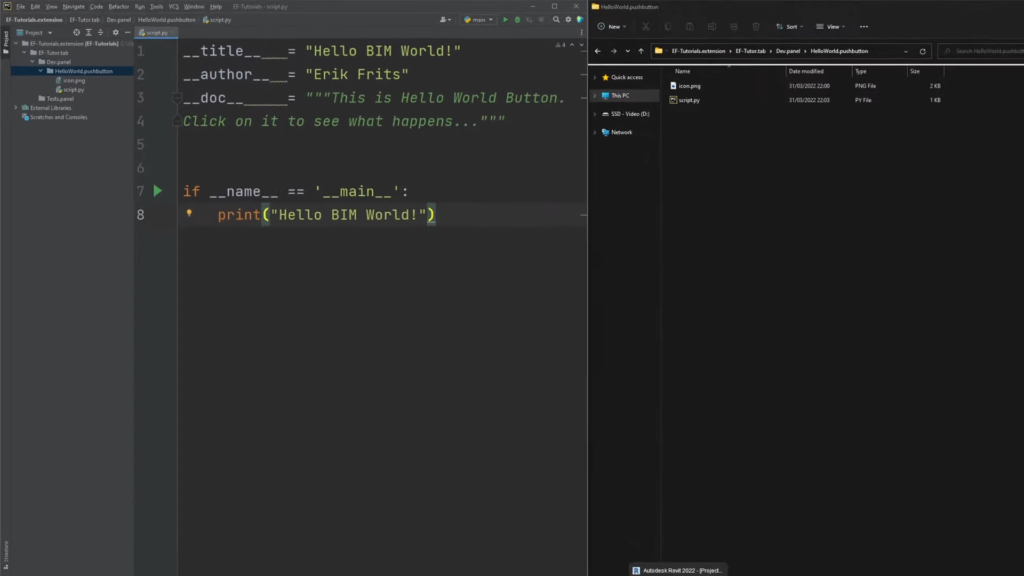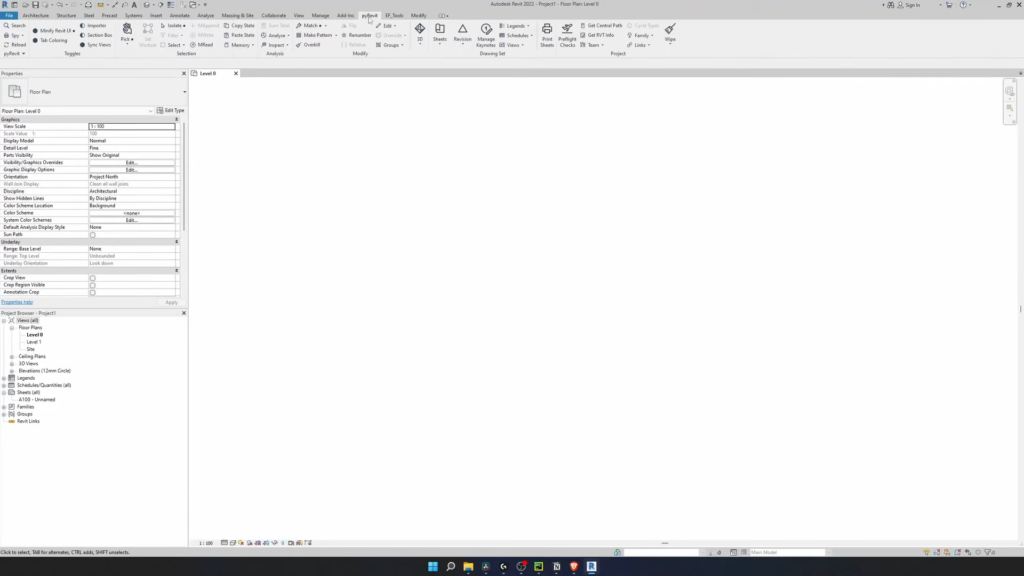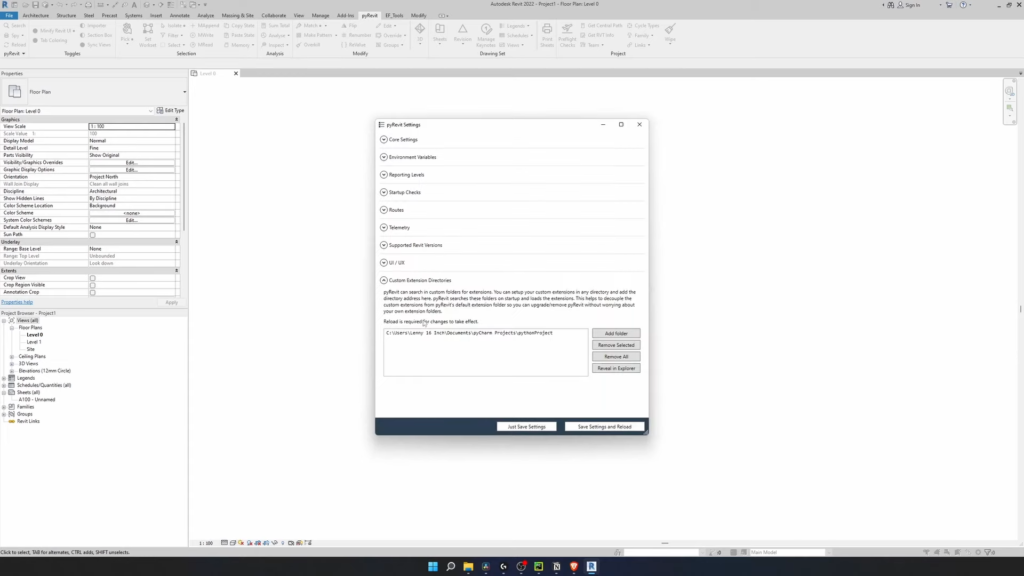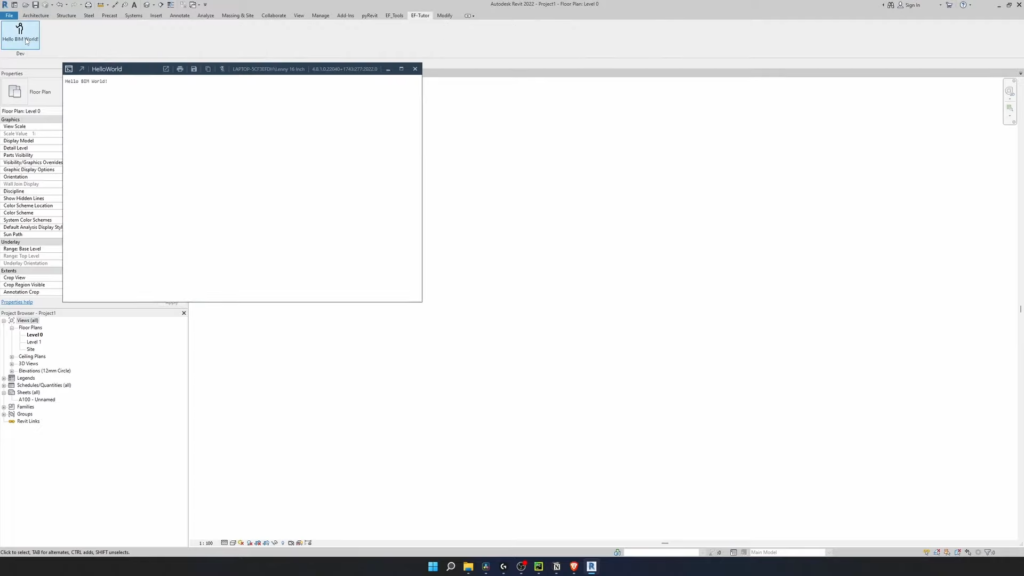- File size:
- 68 MB
- Date added:
- Nov 04, 2023 | Last update check: 1 minute ago
- Licence:
- Open-source / Free
- Runs on:
- Revit
pyRevit for Revit, or Python for Revit, is an open-source add-in that functions as developer environment and allows you to add your own Python scripts to the Revit user interface. It is a RAD (Rapid Application Development) environment for Autodesk Revit and an essential tool for BIM managers. Leverage Revit API (application programming interface) to create your own custom tools and automate boring and repetitive tasks. pyRevit helps you quickly sketch out your automation and addon ideas, in whichever language that you are most comfortable with, inside the Revit environment and using its APIs. It also ships with an extensive set of powerful tools that showcase its capabilities as a development environment. It is recommended to have some experience with any programming language such as Python or C#, or visual programming like Dynamo or Grasshopper.
As Revit doesn’t have command line interface (like in AutoCAD), this add-in allows you to write your own scripts using Python and access the Revit API. You can do anything you want to do with Revit API, if the Revit API and Python allows you to do. pyRevit can be your platform for publishing plugins for Revit and it can help you get more familiar with the Revit API. You can write addons for Revit using python (IronPython or CPython), C#, VB.Net.
When you create your own add-in for Revit, Revit API enables your code to communicate with Revit application. Through API developers give access to their software. There are many custom add-ins for Revit which gives Revit more functionality and allows to be as good as it is.
Besides accessing the Revit API and running Python scripts in Revit, you can use pyRevit to run Dynamo scripts, detect events in Revit, package all of this into toolbars, and many more. pyRevit also ships with a handy CLI utility for customized configuration and deployment of your tools, and a telemetry server to monitor pyRevit usage across your teams. Similar to Dynamo, you can build your own scripts and tools to run through the add-in itself. You can technically also run Dynamo scripts as well, so this could be a good way to deploy your scripts to a wider audience such as a company, rather than using Dynamo Player. pyRevit allows you to build tools which have broader capabilities than what Dynamo can offer without heavy customization. You can easily distribute your tools (pyRevit, Dynamo, or Grasshopper) to your teams using an unified interface. pyRevit is an open-source project, and other people can contribute towards.
There are some of the included and the most used pyRevit tools:
- Make Pattern. Create custom patterns.
- Manage Keynotes. Manage project keynotes.
- Manage Packages. Manage sheet packages.
- Manage Tags. Manage tags in project or selected elements.
- Get RVT Info. Get Revit model information.
- Tab Coloring. Colorize Revit tabs.
- Print Sheets. Print Sheets in order from a sheet index.
Typical workflow:
- Install pyRevit. Download and run the installer. Open Revit (any version). Note the new pyRevit tab.
- Configure pyRevit. If you want to change default configuration settings, go to pyRevit Settings.
- Create extensions. Create your own extensions or install third-party extensions. Easily keep them all updated.
About Ehsan Eiran-Nejad
pyRevit is managed by architect Ehsan Eiran-Nejad who also contributes towards the Rhino Inside project. Ehsan is based in Portland, Oregon.
Gallery

PyCharm: the Python IDE (integrated development environment). ©Erik Frits

pyRevit ribbon tab in Revit. ©Erik Frits

pyRevit Settings. ©Erik Frits

Custom plugin in Revit. ©Erik Frits